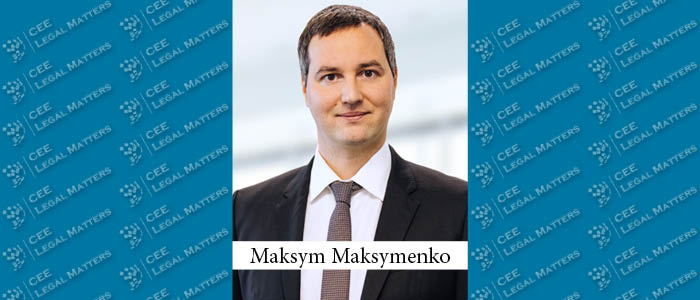Given the complexity of modern legal traffic, the complex economic structures are becoming a standard in today’s business transactions. There is an increase in business activities which include a larger number of participants. Accordingly, disputes involving more than two subjects are occurring ever more often - especially on the international level. In light of this, the ICC International Court of Arbitration even noted an increase in multi-party arbitrations stating that one-third of ICC cases today involve multiple parties.[i]
The "Dupe" Trend and Competition
A popular practice among consumers under the age of 30 is to purposely search for better-value alternatives to items from well-known brands. Started to gain followers on social media, this idea has become a phenomenon, with entrepreneurs setting up e-stores, boldly claiming to sell dupes (short for "duplicates"). Others sell their own products "inspired" by current trends. And while supply is generally justified by demand, it raises the question of whether duplicates are an innocent more affordable alternative or an unfair profiting on the back of another. Public opinion is divided, but we are going to examine what the law says.
Legislative News from the Slovak Republic
We bring you a brief overview of important legislative news from the Slovak Republic that should not escape your attention.
Update: Austrian Government Publishes Bill on Contribution to Defence Costs in Criminal Proceedings
Discussing the draft bill aimed at increasing the contribution to legal costs for suspects not found guilty in criminal proceedings. Recently, the government has published its revised bill.
Supreme Court: Overtime Work Can Exist Without Employer’s Resolution or Written Request
In an era where social media has become an integral part of daily life, the issue of privacy protection is gaining increasing importance. Typically, social media platforms offer mechanisms to control access to the content which individuals share on their profiles, including the so-called profile “locking”. On the other hand, content on “unlocked” profiles is accessible to an unlimited number of people, allowing anyone who visits a particular profile to view the content created or published by its owner.
Whistleblower Protection Act Finally Adopted
After prolonged delays, the Estonian Parliament finally incorporated the EU Whistleblowing Directive into national law on 15 May 2024 by passing the Act on the Protection of Whistleblowers of Work-Related Violations of European Union Law (referred to as the Whistleblower Protection Act).
Regulation of Labor of Domestic Workers
On 25 April 2024, Ukrainian Parliament adopted the Law of Ukraine “On Amendments to Certain Legislative Acts of Ukraine Regarding the Regulation of Labour of Domestic Workers”, which introduces regulation of labour relations with domestic workers. The Law supplements the Labour Code of Ukraine (the “Labour Code”) with a new Chapter "Labor of Domestic Workers".
Checking In: Implementing Whistleblowing Regulations in CEE
For our Checking In feature, we reach out to partners and heads of practice across CEE to learn how specific practice areas are faring in their jurisdictions. For this piece, we asked firm Labor experts: Have whistleblowing regulations been implemented in your jurisdiction and would you advise companies to use an external solution or an in-house one? Why?
Slovakia: Construction Legislation from 1 April 2024
The new construction legislation approved in 2022, which aims, among other things, to speed up permitting processes, was to enter into force as a whole on 1 April 2024. This legislation divided the "old" Construction Act into two parts: spatial planning and construction.
Violation of Privacy Rights through Publication in the Media: Using Photos from Individuals Social Media Profiles
In an era where social media has become an integral part of daily life, the issue of privacy protection is gaining increasing importance. Typically, social media platforms offer mechanisms to control access to the content which individuals share on their profiles, including the so-called profile “locking”. On the other hand, content on “unlocked” profiles is accessible to an unlimited number of people, allowing anyone who visits a particular profile to view the content created or published by its owner.
Ukrainian Government Approves Regulation of State Support for Investment Projects with Significant Investments
On 26 April 2024, the Cabinet of Ministers of Ukraine (“Government”) approved the Procedure for Using Funds from the State Budget to Provide State Support for the Implementation of Investment Projects Involving Significant Investments (“Budget Procedure”).
The Supreme Court Has Ruled: Losers Must Pay!
In a previous article, we analyzed the phenomenon where courts typically reduce the attorney fees awarded to the winning party. This essentially forces the winner to incur unjustified losses, indirectly causing market distortion. Now, the Supreme Court has responded to this phenomenon with a precedent-setting, binding decision. Let's first look at the key developments and then how this affects litigation strategy!
Labour Law Changes: Impact of EU Directive on M&A Procedures
On 15 May 2024, amendments to the Labour Code of Ukraine came into effect aiming to regulate the rights and obligations of parties in labour relations during a change of control over business. The Ukrainian parliament adopted such amendments to align Ukrainian legislation with EU Directive 2001/23/EC, dated 12 March 2001.
The Hidden Pitfalls of Transfer Pricing
In the audit practice of the Hungarian Tax and Customs Administration (HTA), the audit of transfer pricing is gaining importance. Moreover, the relevant regulations are becoming more complex with each passing year. As the deadlines for transfer pricing documentation approach, it is worth reviewing what hidden pitfalls should be avoided when preparing documentation and providing data.
Understanding Ukraine's M&A Landscape: Trends in 2023-2024
Despite the ongoing war, there was a significant increase in Mergers & Acquisitions (M&A) transactions and private equity (PE) investments in 2023 compared to 2022, predominantly in the IT sector. Openly accessible market evaluations indicate that the volume of M&A deals might have reached $1.7 billion in 2023, five times more than in 2022. While that does not quite match the level of activity observed in 2021, it sets a cautiously optimistic tone for 2024.
Cryptocurrency Investments: What Should I Call You?
The decision of the U.S. Securities and Exchange Commission (SEC) on January 10 has stirred significant attention, as it granted approval for the listing of certain products based on Bitcoin on the stock exchange. The impact of this decision on the European and American securities markets, and whether similar steps will be taken, depends largely on the details – including the names assigned to cryptocurrency-based products.
Member State Authorities Cannot Withdraw Residence Permits Without Giving Reasons Even If the Reason is “TOP SECRET”
The Court of Justice of the European Union has decided in two cases concerning Hungary in its judgments in joined cases C-420/22 and C-528/22, published on 25 April 2024.
Legal Update – Modifications to Law 17/2014 on Extramuros Agricultural Land Sale
The recent modifications to Law 17/2014 regarding on the regulation of sale of extramuros agricultural land („Law 17”) came into force through the modifications brought by Law 116/2024, adopted on 29 April 2024 and published a day later.

































